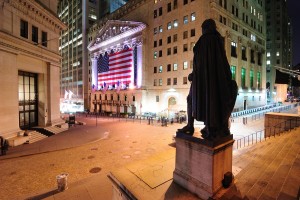The mergers and acquisitions (M&A) market is a vast one. It consists of lucrative contracts, enormous fees charged by all the parties involved and it can either help or hurt the value of a stock. For the average person, they’re indifferent to these business deals, but they’re prevalent on Wall Street.
For years now, there have been allegations that some of these M&A deals might have involved insider trading. A lot of proof hasn’t necessarily come forward, but a new study may shed some light on this suspicious practice.
According to a new study published by the IRRC Institute and conducted by professors Menachem Brenner and Marti Subrahmanyam of New York University and Patrick Augustin of McGill University in Montreal, up to one-quarter of M&A deals involving publicly-traded companies may have done so with elements of insider trading.
 Researching 1,859 transactions from 1996 to 2012 and honing in on stock option activity to assess possible strange trading activity within 30 days of the deal publicly announced, 25 percent might have been afoul, but the Securities and Exchange Commission (SEC) only litigated 4.7 percent of them.
Researching 1,859 transactions from 1996 to 2012 and honing in on stock option activity to assess possible strange trading activity within 30 days of the deal publicly announced, 25 percent might have been afoul, but the Securities and Exchange Commission (SEC) only litigated 4.7 percent of them.
The SEC has not commented on the release of the report.
“Completed deals are strong predictors of options litigation, as a withdrawn or rumored deal is about 22 times less likely to be investigated,” the professors averred. “The S.E.C., being resource-constrained, pursues larger-sized cases that provide the biggest ‘bang for the buck’ from a regulatory perspective.”
If the study is proved to be correct then the report authors say the government has a lot of work to do in order to right the wrongs and ensure that it does not transpire again in the future – experts say that it’s rather unlikely to happen.
“It takes the SEC, on average, 756 days to publicly announce its first litigation action in a given case,” the study authors wrote. “Thus, assuming that the litigation releases coincide approximately with the actual initiations of investigations, it takes the SEC a bit more than two years, on average, to prosecute a rogue trade.”
In 2012, Rajat Gupta, a managing partner of McKinsey & Co. and director of Goldman Sachs and Procter & Gamble, was convicted by a federal jury for leaking inside information to Raj Rajaratnam, a hedge fund manager. The case had been prosecuted by United States Attorney for the Southern District of New York Preet Bharara and Rajaratnam was convicted of insider trading and is now serving an 11-year prison sentence.
Although each jurisdiction within the United States and elsewhere around the globe maintains different insider trading laws, it has become a ubiquitous practice and experts are demanding action.
An op-ed published in the South China Morning Post urged the Chinese government to crack down on out of control insider trading.
“Insider trading is arguably a reason for China’s lacklustre stock market. It also provides cover for other kinds of corrupt behaviour and is a stumbling block in China’s effort to build a sound market economy based on the rule of law,” wrote Hu Shuli. “Regrettably, the regulator has rarely penalized insider trading, mainly because of the difficulty in proving the crime.”



